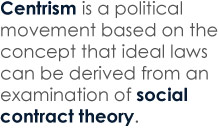A very brief overview on distributing wealth fairly
There are lots of things society might want to distribute equally, but wealth probably isn’t one of them. In this post we go over alternative ways to allocate money amongst a population.
This is a follow-up to the post What makes a fair and equal society?, where we define a fair society as a state or nation whose population have agreed in advance how assets (such as wealth, freedom, voting rights, etc.) should be distributed, and thereafter enforce this distribution. But although people may agree to distribute some of these assets equally to all individuals — for example legal rights, voting rights and opportunity — it’s not clear that they would feel the same way about material assets such as money and property. There are many differing opinions about how one might distribute this sort of asset (termed ‘material wealth’, sometimes shortened simply to ‘wealth’) if not evenly, and this post will give a brief overview of the different alternatives (the Stanford Encyclopaedia of Philosophy’s entry on distributive justice, found in the references, goes into all of them in more detail) together with a short discussion of the problem of choosing between them. It concludes with the current standpoint of this site, which we will expand on in future posts. Read the rest of this entry »



